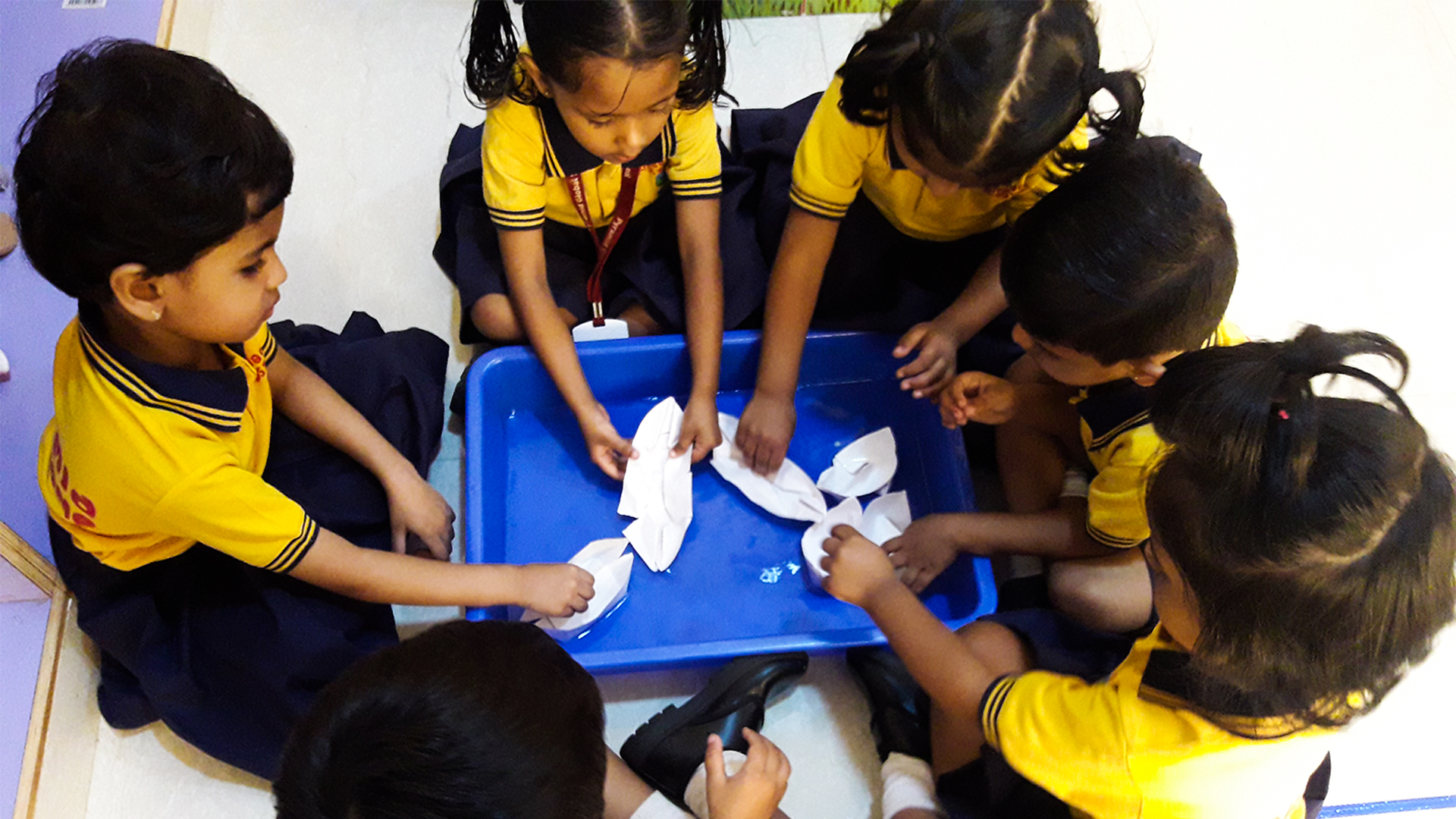Giving your child the best start in life
Get In Touch
Monday to Saturday: 10.00am – 07.00pm
Sunday: Close
Email: info@pyramidkidszone.com
Phone: +91 123 456 7891
Monday to Saturday: 10.00am – 07.00pm
Sunday: Close
Email: info@pyramidkidszone.com
Phone: +91 123 456 7891

Play is often seen as a simple way to keep children entertained, but it is actually one of the most important aspects of early childhood development. Through play, children explore the world, solve problems, build relationships, and express creativity. From a baby’s first game of peek-a-boo to a preschooler’s imaginary tea party, every playful moment shapes their growing mind and body.
In today’s fast-paced world, structured learning often overshadows play. However, research proves that play is essential for a child’s overall development. It fuels imagination, enhances problem-solving skills, strengthens social-emotional resilience, and improves physical coordination.
So how can we ensure that children get enough meaningful play? Let’s explore different types of play, their benefits, and practical ways to encourage play at every stage of early childhood.
Different Types of Play and Their Benefits
Imaginative Play (pretend play, role-playing, dress-up)
Encourages creativity, storytelling skills, and emotional expression. When children step into different roles and invent stories, they develop problem-solving abilities and learn to navigate social interactions.
Physical Play (running, jumping, climbing)
Develops motor skills, balance, and coordination while keeping children active and healthy. It also helps build confidence as they take risks in a safe environment.
Constructive Play (building with blocks, puzzles)
Improves problem-solving skills, spatial awareness, and creativity. It also teaches patience and perseverance as children figure out how different pieces fit together.
Social Play (group activities, board games)
Teaches teamwork, cooperation, turn-taking, and communication. These experiences help children build friendships and learn to work with others.
Play is a natural and engaging way for children to learn. The more they play, the more they discover. Providing ample opportunities for exploration, imagination, and creativity is key to their development.
Playful Learning at Every Age
Children do not just play for fun—they play to learn. By tailoring play experiences to their developmental stage, we can help them grow in a way that feels natural and enjoyable.
Birth to 6 Months: Exploring the World
At this stage, even the simplest interactions count as play. Babies are naturally curious, and their playful moments lay the foundation for future learning.
7 to 12 Months: Cause and Effect Learning
As babies become more mobile, they start to test how things work. This is the perfect time to introduce:
1 to 3 Years: Active Learning Through Play
At this stage, play becomes more interactive, and toddlers learn best through hands-on experiences.
4 to 6 Years: Creativity and Social Skills
At this age, children enjoy creating, pretending, and socializing. Their play becomes more complex, supporting cognitive and emotional growth.
Play is not just a pastime—it is the most effective way for young children to learn. Schools should prioritize recess and play-based learning alongside structured educational activities.
The Hidden Superpower of Play: Stress Relief
Play is not only about learning—it is also a powerful tool for managing stress. Research shows that children feeling anxious about starting preschool were twice as likely to feel relaxed after 15 minutes of play compared to those who simply listened to a story.
Why? Play strengthens relationships, provides emotional security, and helps children regulate their feelings. The joyful interaction between a child and caregiver during play fosters a strong, resilient mindset.
The next time your child asks to play, take the opportunity. It is one of the most meaningful ways to support their emotional well-being.
Mixing It Up: Different Ways to Play
Toys and Object Play
When babies play with objects, they become little scientists. They test different properties, explore textures, and develop problem-solving skills. Preschool-age children also use objects for symbolic play, such as pretending a banana is a telephone.
Physical Play
Running, climbing, and sliding help children build strength, confidence, and teamwork. Even simple games like tag teach self-regulation and social awareness.
Outdoor Play
Fresh air, movement, and nature exploration improve attention spans and overall well-being. Studies show that countries with more recess time see greater academic success in later years.
Pretend Play
Dress-up, role-playing, and make-believe games help children experiment with different social roles, develop negotiation skills, and expand their imagination.
The Bottom Line: Play is Learning
Play is more than just fun—it is the foundation for lifelong curiosity, creativity, and confidence. When children have the freedom to explore, imagine, and create, they develop the skills they need to thrive.
So embrace the mess, join the tea party, build a fort, or play a game. Every playful moment is an opportunity for connection and growth.
The next time your child asks, “Will you play with me?”—say yes. Because in that moment, you are not just playing. You are shaping their future.
Get all the latest information, support and guidance about the cost of living with kindergarten.
Start Registration